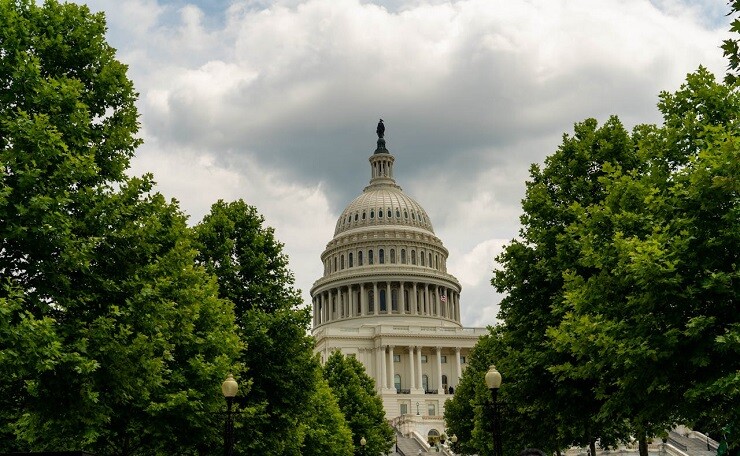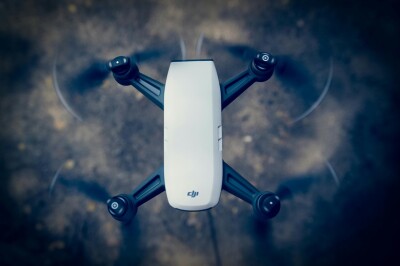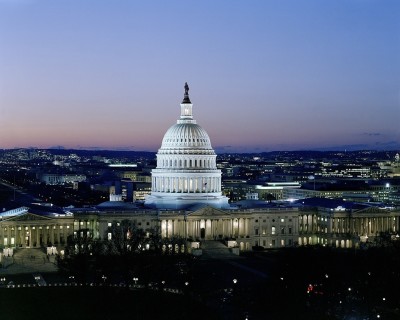Editor's Note: Since publishing this piece, Senator Rick Scott (R-FL) has submitted an amendment to have the Countering CCP Drones Act included in the Senate's version of the 2025 NDAA. As of writing this, the amendment has not yet been formally accepted into the bill. However, the amendment is co-sponsored by Senator Mark Warner (D-VA), making it bipartisan, which could lead to its acceptance. Watch Commercial UAV News for updates.
The DJI ban is not moving forward—for now.
The Senate Armed Services Committee has released its version of the National Defense Authorization Act 2025 (S. 4638, NDAA FY25), and it does not include the Countering CCP Drones Act, which is the law that called for a nation-wide DJI ban.
The House version of the NDAA FY25 was put out last month and did include the CCP Drones Act, leading to widespread speculation about whether the ban would become law and what might happen if it did.
The Senate’s decision not to include the law may have been influenced by the blowback from first responders. Shortly after the House passed the NDAA FY25 last month, representatives from over 6,000 public safety agencies—the majority police and fire departments with drone programs—wrote to the Senate Armed Services Committee to express their opposition to the Countering CCP Drones Act.
The decision could also have been influenced by everyday drone pilots.
Anecdotally, we know that hundreds if not thousands of pilots have contacted their representatives expressing their opposition to the law, some citing DJI’s data that the ban would lead to the closure of 67% of small US drone businesses. (The source of that data is admittedly biased, but still seems in the ballpark given that there just aren’t many other sub-$5k drone platforms out there for drone solopreneurs to use.)
For lawmakers in favor of the ban, the NDAA must have seemed like a promising way to get it passed. Last year, a ban on the use of Chinese drones by federal agencies was passed as part of the 2024 NDAA. That ban was the core legislation of the ASDA (American Security Drone Act), a law that was first drafted in 2020.
It’s worth noting that the ASDA didn’t just impact the types of drones federal agencies can buy, but also the types of drones that can be used on federal land. This means that a drone pilot contracted to do an aerial shoot of a site that includes federal land can’t use a DJI drone for the work—a consideration that has already created legal headaches for pilots, as well as for photographers looking to add drones to their repertoire.
And the Countering CCP Drones Act would have gone much farther in adding complexity to the work of drone service providers, making it quite hard, if not impossible, to afford the technology needed to do the work.
What Does the Senate’s Version of the NDAA Say about Drones?
Although the Senate’s NDAA FY25 doesn’t mention DJI, it does have some key statements about drones.
The NDAA is always important for the drone industry, since it typically contains funding for the development of drones for defense and for dual use (military and civilian).
Regarding drones, the Senate NDAA calls for:*
- A report on military drone funding. Directs a report on the Army’s current small UAS funding model and a proposal for the consolidation of funding lines to improve fiscal agility in the portfolio.
- Increased funding for drone manufacturing. Authorizes increased funding for the development of new and innovative design, manufacturing, and production techniques for low-cost attritable, uncrewed systems, as well as the development of distributed artificial intelligence fusion for such systems.
- Drone supply chain development. Requires a strategy to develop a secure domestic and allied supply chain of critical components for small UAS.
- Civil authority/DOD partnerships to implement CUAS (Counter UAS). Authorizes the DOD to support civil authorities to detect, identify and monitor UAS that cross the international land borders of the US.
*Lines in italics include language taken from the draft bill.
Could the DJI Ban Be Added Back into the 2025 NDAA?
Just because the current Senate version of the NDAA doesn’t include the DJI ban doesn’t mean the law is dead in the water.
Here are the next steps before this year’s NDAA passes:
- The Senate Armed Services Committee’s version of the NDAA will go to the Senate floor for a debate—amendments could be added when this happens, including an amendment to add the ban.
- The Senate will vote to approve its version of the NDAA.
- If there are differences between the Senate’s version and the House’s version they will be hashed out by members of the Senate and House Committees on Armed Services, which will produce a report as a result of this work.
- That report will be sent to both the House and Senate for approval, and both chambers will reconcile their versions of the bill until they reach consensus.
- After this work by Congress, the NDAA will be sent to the president for his signature.
As you can see, there are a lot more chances for the ban to be worked back in.
But we don’t think that’s likely.
First, the House is currently controlled by the Republican party, and the House vote on the NDAA was largely split along party lines, with only three Republicans voting against it. The Senate, on the other hand, is controlled by the Democrats right now, and it seems unlikely that enough of them would join Republicans to make it possible to vote in favor of including the DJI ban.
Further, as we noted above, the public outcry against the ban has been strong.
And finally, President Biden has said that he’d veto the current House version of the NDAA if it was presented to him due to it containing “culture war issues” (though he wasn’t specifically referring to the drone industry, the DJI ban does seem relevant).
But of course, all of this is speculation.
There is always a chance the Countering CCP Drones Act could be added to the NDAA before it gets passed. And regardless of what happens with the NDAA, it seems likely that the ban’s boosters in Congress—who have also proposed a DJI ban in another law, called the Drones for First Responder Act—will continue pushing to get some kind of ban enacted.
















Comments